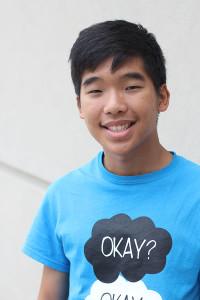Lauding the limited role of government in education, conservative radio talk show host Rush Limbaugh said, “The public school system doesn’t get everybody. Every generation has its rebels.”
We, private school students, are the rebels. With only 10% of U.S. students attending private schools, private schools have historically provided more extracurricular services, smaller class sizes and higher college graduation rates. However, private schools have come under fire as tuition costs have shot up, and more public schools like Stuyvesant High School in New York are outperforming private schools with test scores and college acceptances. Consequently, more parents are uncertain about whether public or private schools are the best educational option.
Public schools and private schools produce very similar results when family and social class backgrounds are taken into consideration. A 2007 Center of Education Policy study shows that private school students in general score no better on achievement tests in math, reading, science and history than public school students when socioeconomic backgrounds are held constant.
Critics contend that class sizes, superior teachers and more academic opportunities promote private school students to surpass public school students. However, private school students academically succeed and get higher test scores (when social class differences are not accounted) mainly because they come from more affluent backgrounds, not because the educational institution excels.
Although public schools can be categorized into varying degrees of effectiveness from magnet schools, “elite” public schools and inner-city public schools, the decision to go to a public or private school hardly affects academic success because economic backgrounds and parental engagement influence educational success the most.
By fostering hardworking educational attitudes, providing money for tutoring and extracurricular opportunities and maintaining a financially secure family, socioeconomic backgrounds have a more direct impact on educational performance than the resources provided at a school.
“Socioeconomic backgrounds are probably the largest factor in determining the student’s success in school,” senior Nick McKenzie, who has experienced both public and private schools, said. “That’s why I think students who have excelled from a difficult economic background are so heavily rewarded by colleges and the academic community.”
As the Brookings Institution, an American centrist think tank, elaborates, six out of every ten children from the wealthiest slice of families placed among the top third of test takers, whereas six out of every ten children from the poorest slice of families placed among the bottom third. Wealth has played such a large role in determining the educational and career prospects. A “glass floor” has emerged where people who are born rich cannot go below a certain educational level and social class, such as by exponentially decreasing the chance of dropping out of high school or taking a working class job.
Similarly, parental contributions ranging from financial to emotional support often determine the educational achievement of schools and their students.
As The Week explains, private schools usually foster more parental contributions to provoke more curiosity, creativity and engagement among students. According to a study conducted by North Carolina State University, family social capital—the amount of trust and communication between students and parents with activities like checking homework and attending school events—has the strongest effect on a student’s academic success.
Likewise, many public schools complain about a lack of parental involvement as the largest problem facing public schools.
“Parents play a huge role in the development of a school. Chaperons were hard to come by in public school, while there are moms at Trinity falling over each other (and even competing) to help students at school functions,” McKenzie said.
Because socioeconomic and family backgrounds play such a large role in academic achievement, the institution has little impact on the future success of students.
This fact does not mean that teachers, extracurricular opportunities and other school sponsored activities do not affect students. Moreover, family social capital and economic backgrounds have a significantly larger impact because the resources provided by a school do not greatly change the academic and family attitudes that define future success.
“I think the big determinant [to future academic and career success] is having a home environment that prioritizes or supports academic success,” said economics teacher Kelly Aull, who has taught at both public and private schools.
However, private schools and public schools do not each collapse into a one-size-fits-all motif. Academic quality provided by schools could be the main determinant to future success when public schools are severely underfunded in certain school districts. Likewise, in properly funded and engaged school districts, the private schools are not worth the cost when the quality of resources provided by public and private schools are compared.
Beyond the option of having a religiously oriented attitude and resolving the lack of effective public schools in one’s school district, private schools also promote a safer environment for students and encourage students to take harder level courses, according to the Council of American Private Education. Having a safer atmosphere, students can focus significantly more on their academic and social environments, while harder level courses undoubtedly peak more intellectual curiosity and depth.
Additionally, because private schools are not bound to educational curriculum set by local or state governments, they can sometimes create more innovative educational opportunities and adjust to developments in education more quickly.
“Private schools have better facilities, can provide more narrowly targeted educational opportunities, and can adapt faster to change,” Aull said.
Nonetheless, with regards to academic success and future career prospects, private schools in general confer hardly any advantage over public schools regarding the academic success of their students.
Although we might be the rebels against the public education system, we should question whether we are rebelling with reason or without a cause.
Breaking News
- April 22April 25th- History Bowl and Bee National Competition
- April 22April 24th- Orchestra Concert
- April 22April 23rd- US Assembly/Community Service Awards
- April 22April 22nd- Fine Arts Hall of Fame Induction



